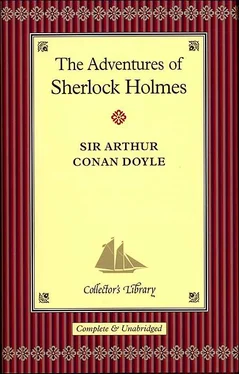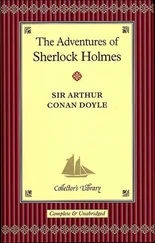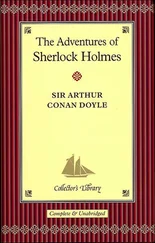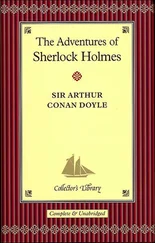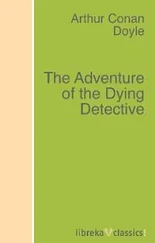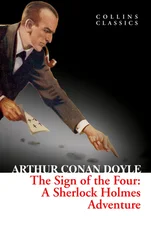Sir Arthur Conan Doyle
The Five Orange Pips
When I glance over my notes and records of the Sherlock Holmes cases between the years ‘82 and ‘90, I am faced by so many which present strange and interesting features that it is no easy matter to know which to choose and which to leave. Some, however, have already gained publicity through the papers, and others have not offered a field for those peculiar qualities which my friend possessed in so high a degree, and which it is the object of these papers to illustrate. Some, too, have baffled his analytical skill, and would be, as narratives, beginnings without an ending, while others have been but partially cleared up, and have their explanations founded rather upon conjecture and surmise than on that absolute logical proof which was so dear to him. There is, however, one of these last which was so remarkable in its details and so startling in its results that I am tempted to give some account of it in spite of the fact that there are points in connection with it which never have been, and probably never will be, entirely cleared up.
The year ‘87 furnished us with a long series of cases of greater or less interest, of which I retain the records. Among my headings under this one twelve months I find an account of the adventure of the Paradol Chamber, of the Amateur Mendicant Society, who held a luxurious club in the lower vault of a furniture warehouse, of the facts connected with the loss of the British bark Sophy Anderson, of the singular adventures of the Grice Patersons in the island of Uffa, and finally of the Camberwell poisoning case. In the latter, as may be remembered, Sherlock Holmes was able, by winding up the dead man’s watch, to prove that it had been wound up two hours before, and that therefore the deceased had gone to bed within that time — a deduction which was of the greatest importance in clearing up the case. All these I may sketch out at some future date, but none of them present such singular features as the strange train of circumstances which I have now taken up my pen to describe.
It was in the latter days of September, and the equinoctial gales had set in with exceptional violence. All day the wind had screamed and the rain had beaten against the windows, so that even here in the heart of great, hand-made London we were forced to raise our minds for the instant from the routine of life and to recognize the presence of those great elemental forces which shriek at mankind through the bars of his civilization, like untamed beasts in a cage. As evening drew in, the storm grew higher and louder, and the wind cried and sobbed like a child in the chimney. Sherlock Holmes sat moodily at one side of the fireplace cross-indexing his records of crime, while I at the other was deep in one of Clark Russell’s fine sea-stories until the howl of the gale from without seemed to blend with the text, and the splash of the rain to lengthen out into the long swash of the sea waves. My wife was on a visit to her mother’s, and for a few days I was a dweller once more in my old quarters at Baker Street.
“Why,” said I, glancing up at my companion, “that was surely the bell. Who could come to-night? Some friend of yours, perhaps?”
“Except yourself I have none,” he answered. “I do not encourage visitors.”
“A client, then?”
“If so, it is a serious case. Nothing less would bring a man out on such a day and at such an hour. But I take it that it is more likely to be some crony of the landlady’s.”
Sherlock Holmes was wrong in his conjecture, however, for there came a step in the passage and a tapping at the door. He stretched out his long arm to turn the lamp away from himself and towards the vacant chair upon which a newcomer must sit.
“Come in!” said he.
The man who entered was young, some two-and-twenty at the outside, well-groomed and trimly clad, with something of refinement and delicacy in his bearing. The streaming umbrella which he held in his hand, and his long shining waterproof told of the fierce weather through which he had come. He looked about him anxiously in the glare of the lamp, and I could see that his face was pale and his eyes heavy, like those of a man who is weighed down with some great anxiety.
“I owe you an apology,” he said, raising his golden pince-nez to his eyes. “I trust that I am not intruding. I fear that I have brought some traces of the storm and rain into your snug chamber.”
“Give me your coat and umbrella,” said Holmes. “They may rest here on the hook and will be dry presently. You have come up from the south-west, I see.”
“Yes, from Horsham.”
“That clay and chalk mixture which I see upon your toe caps is quite distinctive.”
“I have come for advice.”
“That is easily got.”
“And help.”
“That is not always so easy.”
“I have heard of you, Mr. Holmes. I heard from Major Prendergast how you saved him in the Tankerville Club scandal.”
“Ah, of course. He was wrongfully accused of cheating at cards.”
“He said that you could solve anything.”
“He said too much.”
“That you are never beaten.”
“I have been beaten four times — three times by men, and once by a woman.”
“But what is that compared with the number of your successes?”
“It is true that I have been generally successful.”
“Then you may be so with me.”
“I beg that you will draw your chair up to the fire and favor me with some details as to your case.”
“It is no ordinary one.”
“None of those which come to me are. I am the last court of appeal.”
“And yet I question, sir, whether, in all your experience, you have ever listened to a more mysterious and inexplicable chain of events than those which have happened in my own family.”
“You fill me with interest,” said Holmes. “Pray give us the essential facts from the commencement, and I can afterwards question you as to those details which seem to me to be most important.”
The young man pulled his chair up and pushed his wet feet out towards the blaze.
“My name,” said he, “is John Openshaw, but my own affairs have, as far as I can understand, little to do with this awful business. It is a hereditary matter; so in order to give you an idea of the facts, I must go back to the commencement of the affair.
“You must know that my grandfather had two sons — my uncle Elias and my father Joseph. My father had a small factory at Coventry, which he enlarged at the time of the invention of bicycling. He was a patentee of the Openshaw unbreakable tire, and his business met with such success that he was able to sell it and to retire upon a handsome competence.
“My uncle Elias emigrated to America when he was a young man and became a planter in Florida, where he was reported to have done very well. At the time of the war he fought in Jackson’s army, and afterwards under Hood, where he rose to be a colonel. When Lee laid down his arms my uncle returned to his plantation, where he remained for three or four years. About 1869 or 1870 he came back to Europe and took a small estate in Sussex, near Horsham. He had made a very considerable fortune in the States, and his reason for leaving them was his aversion to the negroes, and his dislike of the Republican policy in extending the franchise to them. He was a singular man, fierce and quick-tempered, very foul-mouthed when he was angry, and of a most retiring disposition. During all the years that he lived at Horsham, I doubt if ever he set foot in the town. He had a garden and two or three fields round his house, and there he would take his exercise, though very often for weeks on end he would never leave his room. He drank a great deal of brandy and smoked very heavily, but he would see no society and did not want any friends, not even his own brother.
Читать дальше
